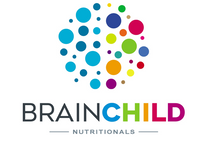The Benefit Of Liquid Supplements

Liquid vitamins have become a popular choice for many people. The liquid form has many benefits including the ease of swallowing, increased absorption, better bioavailability, purity and taste. Liquid supplements are also more convenient because they can be stored for longer periods of time. A liquid supplement is an easy way to get all the vitamins you need without having to take multiple pills throughout the day.
The liquid form of vitamins also tastes much nicer than taking tablets or capsules which can leave an unpleasant taste in your mouth for hours after ingestion.
Ease of Swallowing
Particularly with children or the elderly, ease of swallowing is a big issue. If you can't get a supplement into the body, it has no chance of working. If an individual has difficulty swallowing supplements in capsule form, they may either resist taking them, or be in danger of actually choking on them.
Absorption Rate
Absorption rate has become the real focal point in the Liquid vs. Pill debate after someone found a statement in the Physicians desk reference stating that liquid has a 98% absorption rate compared to 18% from pills. If you spend $100 on pills or capsules, you would most likely be flushing 82% of the $100 you paid for the product down the toilet. That's like literally flushing away $82 out of every $100 you spend.
Quality
Quality is another factor which plays a major role in absorption. You can still buy low quality pills and capsules that do not absorb completely. Buying quality products when purchasing pill and tablet vitamins is vital to getting the biggest benefit from your dollar. On the other hand, liquids can most often provide more nutritional ingredients than pills which can prove to be more cost beneficial than tablets alone. Spending a little more on a quality liquid nutritional supplements can provide more than just saving money. It can still give greater health benefits than the pill counterpart.
Bio Availability
Bio availability generally designates the quantity or fraction of the ingested dose that is absorbed. As it relates to liquid and pills, the amount of product absorbed is dependent upon two primary factors including:
- The ability to digest a given component
- The form in which the body can use the component after digestion
If the body cannot break down a given component during digestion, it will simply pass through the body. However, the body may be able to absorb a nutritional component, yet it may not be able to use the component to benefit the body. In either case, the body will generally rid itself of what it cannot use.
Pills are generally difficult for the body to completely absorb while liquid will absorb quite readily. The challenge is to identify which quality nutritional supplement product will contain the ingredients the body will absorb efficiently, thus making it available to use effectively.
Taste
Have you ever tried to chew a non-chewable vitamin B tablet? If you have, you quickly find out just how bad it tastes. Supplement companies have done a fairly good job of masking the flavor of liquid supplements, but often use artificial flavors and sweeteners to do so.
If you are considering liquid supplements, its very important to read the label and make sure that only specific natural flavorings are used (not listed as "natural flavors" - this labeling trick can hide a host of bad ingredients!). Check to be sure that only low-glycemic natural sweeteners such as glycerine, agave, lo han and stevia are used, not sugar, cane juice, corn syrup or artificial ones like splenda, nutrasweet or aspartame.
Purity
Both pill and liquid forms of supplements are regulated to ensure purity from harmful components. Fillers and binders are commonly found in pills and capsules to keep the product from falling apart during handling. While there is usually nothing harmful with fillers and binders, there is little or no health benefit to them either. In highly sensitive people, some of these fillers can have negative effects.
Some very cheap liquid supplements also may add extra water or juice to dilute their product so it is cheaper.
Shelf Life
This may be counter-intuitive, but you should actually look for liquid supplements with a SHORTER shelf life. Why would this be? Because to have a longer shelf life, liquid supplements must be loaded down with toxic petrochemical preservatives, and a product with a short marked shelf life is more likely to be potent, natural and not toxic. Its similar to preferring fresh milk to the irradiated kind in a cardboard box that lasts forever, or preferring a homemade cookie to a processed one in a package at the store, with all kind of Frankenfood ingredients in it to make it last forever..
Do not buy liquid supplements that use toxic preservatives such as sodium benzoate. Keep liquid supplements in a cool, dark and dry place to help preserve freshness.
Quality and Price
No matter how you look at it, people want the best of both quality and price. Whether it be in liquid or pill form, there are varying levels of quality, and price generally follows. Pills are over all less expensive than liquid and you get more nutrients for your dollar. However, if the pill only absorbs 18%, then your dollar is being flushed. Liquid is a bit more expensive but the cost savings will provide longer lasting benefits.
Some types of supplements won't work as Liquids
Probiotics and digestive enzymes are activated by wetting them, so they wont work as liquid supplements. In the case of probiotics and enzymes, good quality products come in powder or capsule form, and feature high counts of active colonies, and good ability to survive the acidic gut environment.
The Right Choice
The right choice is often difficult to determine. One thing is sure, quality is a must in order to ensure you are getting the most out of every dollar you spend for health. Here at BrainChild Nutritionals, we've made liquids for almost 15 years. We offer high quality liquid, and liquid-filled capsule forms of multivitamins, minerals, plus premium quality probiotics and digestive enzymes and much more.









